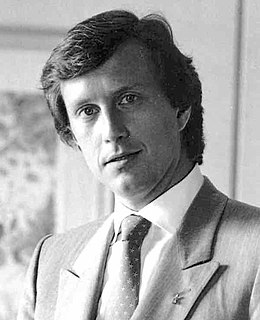A Quote by Warren Buffett
If I taught a class, on my final exam I would take an Internet company and ask, 'How much is this company worth?' Anyone who would answer, I would flunk.
Related Quotes
When you're in a start-up, the first ten people will determine whether the company succeeds or not. Each is 10 percent of the company. So why wouldn't you take as much time as necessary to find all the A players? If three were not so great, why would you want a company where 30 percent of your people are not so great? A small company depends on great people much more than a big company does.
Before the internet, a journalist would write an article about a company that the company felt was unfair and missed a point. All they could do was write a letter to the editor and wait, and maybe a week later it would be printed, or not. Now, they can go to medium.com and immediately publish a long rebuttal, saying the journalist forgot this and did not consider that, the analyst is wrong here. Everybody pulls that immediately into the debate. So it is a much more democratic field for ideas.
It's not that you don't want to earn as much money as you can - it is your obligation, of course - but companies have obligations beyond that and they certainly have obligations beyond that at certain times, in the times in which they operate. And they also certainly ought to know that meeting and beating expectations is probably yesterday's game and it will be increasingly so, which would be by the way very healthy for companies. Running a company that meets and beats expectations, and that runs their company accordingly, are companies that I would question why anyone would invest in.
Whenever I talk to people who founded a company, I often like to ask the prehistory questions 'When did you meet? How long have you been working before you started the company?' A bad answer is, 'We met at a networking event a week ago, and we started a company because we both want to be entrepreneurs.'
Instead of instilling fear, if a company offered a way for everyone in the business to dive within-to start expanding energy and intelligence-people would work overtime for free. They would be far more creative. And the company would just leap forward. This is the way it can be. It's not the way it is, but it could be that way so easily.
At some point my friends and I began to ask, how can a country that produced hippies and such cool people also fight a war and kill people and act cruelly? You would see American GMC trucks go by and soldiers reaching down to whack a girl riding a bicycle. They would yank at her hat and she would get thrown and she would die. You would see Americans do this and feel like they can do anything in our country. But then you'd take an English class with an American soldier from Ohio who seemed just as nice as anyone, yet he was a soldier too.



































